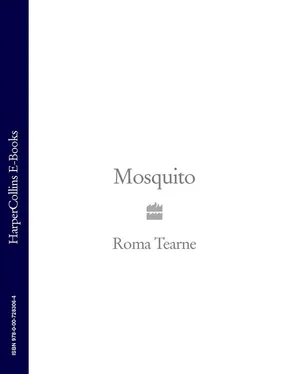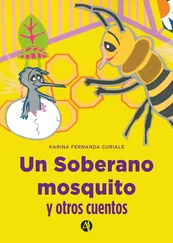1 ...7 8 9 11 12 13 ...16 When she finished working on her painting she discarded her overall. There were still some slivers of paint in her fingernails. Today they were of a different colour. However hard she scrubbed her hands there was still some paint left, thought Theo amused. The day righted itself. The soft smell of colour still clung to her and seemed to Theo sweeter than all the scent of the frangipani blossoms. The picture was nearly finished, she told him, and she wanted to do another one. She needed one more sketch of him. Would Theo be able to sit still, please? He hid his amusement, noticing she had become a little bossy. Her notebook of drawings had grown and she wanted to use them in one more painting. She wanted to paint Theo in his dining room with its foxed mirrors, its beautiful water glasses, its jugs. She wanted to paint him surrounded by mirror-reflected light. Light that moved, she said. This was what interested her, not the trussed chicken. And no, she did not want him to sneak a look at the portrait, she added, laughing at him.
‘You can see it soon,’ she promised, as though he was the child. ‘When it’s finished.’
For now, she told Theo, he could look at her sketchbook instead. Once again she gave him the fragmented stories she had collected. And again they fell from the pages in a jumble of images.
‘Look,’ she said laughing, ‘my uncle!’
She stood too close, confusing him, making him want to touch her hair. Their conversations were a running stitch across her notebook, holding together all that he could not say.
‘There’s no one at home,’ she volunteered. ‘Jim has gone to Colombo with his teacher and Amma is visiting a friend. So I’m all on my own.’
She did not say it, but it was clear she was free to do what she pleased. How can I encourage her to defy her mother in this way? wondered Theo.
‘Jim has to get all the documents he needs to leave.’ Her brother’s departure was never far from her thoughts.
‘Doesn’t he want to wait?’ asked Theo. ‘Doesn’t he want to be sure he has passed the exam first?’
But, Nulani told him, Jim was certain. His teacher too believed he would pass the examination and be awarded the British Council scholarship. Such certainty, thought Theo, raising an eyebrow. He said nothing, watching as the thought of Jim’s certain departure darted and fluttered across her face.
‘He wants to leave Sri Lanka by October,’ Nulani said. She dared not think what that would mean for her.
For the moment, though, with the absence of her family, something, some unspecified tension seemed to ease up. She would stay late and the mornings were fresh and unhampered by the heat. The days stretched deliciously before them, slipping into an invisible rhythm of its own. By now Theo had become used to her presence, and he worked steadily on his manuscript, distracted only occasionally. Perhaps, he thought, Anna had been right. She had always insisted they needed a child to give purpose to their lives. A child was an anchor. It brought with it the kind of love that settles one, she used to say. When she had died Theo had remembered this, thinking, too, how useless a child would have been when all he wanted had been her. Now he wondered if Anna, wise, lovely Anna, had been right after all.
Chapter 3
THERE WERE FLEETS OF ENORMOUS ORANGE MOTHS in Sumaner House where Vikram lived. Moths and antique dust that piled up in small hills behind the coloured-glass doors. The beetles had drilled holes in the fretwork of the frames and sawdust had gathered in small mounds on the ground. It was a useless house really, everything was broken or badly mended, everything was covered in fine sea sand, caked in old sweat and unhappiness. Objectively, it might have made a better relic than a house, but relics were plentiful and houses of this size not easily found. The fact was Sumaner House was huge. Once it must have been splendid. Once, rich Dutch people would have lived in it and crossed the Indian Ocean in big sailing ships, carrying spices and ivory and gold back to their home. Once, too, the filigree shutters, and the newly built verandas, and the black-and-white-tiled floors must have looked splendid. The green glass skylight would have filtered the sun down into the dark interior. But what was the use? Time had passed with steady inevitability, washing away the details of all that had gone before, leaving only small traces of glory. Now the furniture was scratched and full of decay. These days only Vikram and his guardian and the servant woman lived here. Most of the time it was only Vikram and the servant woman who were in the house. She stayed in her quarters, cooking or cleaning, and Vikram came and went as he pleased. There was no one to stop him. No one to ask him questions or argue with him, for Mr Gunadeen, his guardian, was hardly ever present. He was in Malaysia. Why he had ever wanted to be Vikram’s guardian was a mystery. Perhaps he had wanted to protest against the exploitation of child soldiers. Perhaps, he had hoped, that by adopting a Waterlily House orphan he would build up good karma. No one knew, because after that one act of enigmatic charity, Vikram’s guardian went off to work, first in the Middle East and then in Malaysia. Supervising telecommunications systems in other developing countries. Perhaps the war had made him restless, the people in the town said. At least by adopting Vikram he had done something to counteract the work of those murderous Tamil bastards. For, it was said, he was a good Singhala man.
Having picked Vikram more or less randomly from the Waterlily orphanage, Mr Gunadeen put him in the local boys’ school.
‘He needs a good education,’ he told the headmaster privately, without noticing the irony of his words.
The headmaster knew, but chose to forget, that in the wake of independence the Singhalese had slowly denied the Tamils any chance of a decent education. Well, things had changed and these were desperate times. The headmaster knew nothing about child soldiers or their psychological scars. He thought Vikram was an orphan without complications. He knew nothing of his soldiering past.
‘I shall be gone for a few months,’ Vikram’s guardian had said.
‘Don’t worry,’ said the head. ‘He’ll be fine. You’ll notice a change in him when you return, I promise.’
Vikram’s guardian paid him handsomely. Next, Mr Gunadeen instructed the servant woman, Thercy.
‘You know what to do,’ he said. ‘The boy’s a little restless, but just feed him well and make sure he goes to school. I’ll be back in a few months or so.’
And then he went, giving Vikram a contact address and a phone number. He did not think things needed to be any more complicated than that. So Vikram had a home now, a new school and plenty of food. What more could an orphan boy expect? He was far away from the brutal place where they recruited underage children into the military. What more could be done? The people in the town shook their heads in disbelief. What a good man Mr Gunadeen was, they said again, hoping Vikram would be worth the effort put into him. That had been four years ago.
But Vikram seemed not to realise the significance of his good fortune. Right from the very beginning he did not appear to care about anything. At first, when he came to live in Sumaner House, he used to kick the walls, treating the house as though it were a person, scuffing the furniture slyly, gouging holes in the doors when no one was looking, and cracking the fine-coloured glass into as many lines as he could, without breaking it completely. Torturing the house. Only the servant woman knew what he was up to. Thercy the servant woman saw everything that went on.
Then later, as he grew into adolescence, Vikram quietened down. The servant woman noticed this too. Almost overnight Vikram became monosyllabic and secretive. Whenever Thercy looked at him she noticed how expressionless his face was. In the last four years, since the random killings here in the south, the troubles had worsened. Nothing was certain any more but Thercy had learned to keep silent. Privately, she thought Vikram was disturbed. His disturbance, she was certain, lurked, waiting to pounce.
Читать дальше












